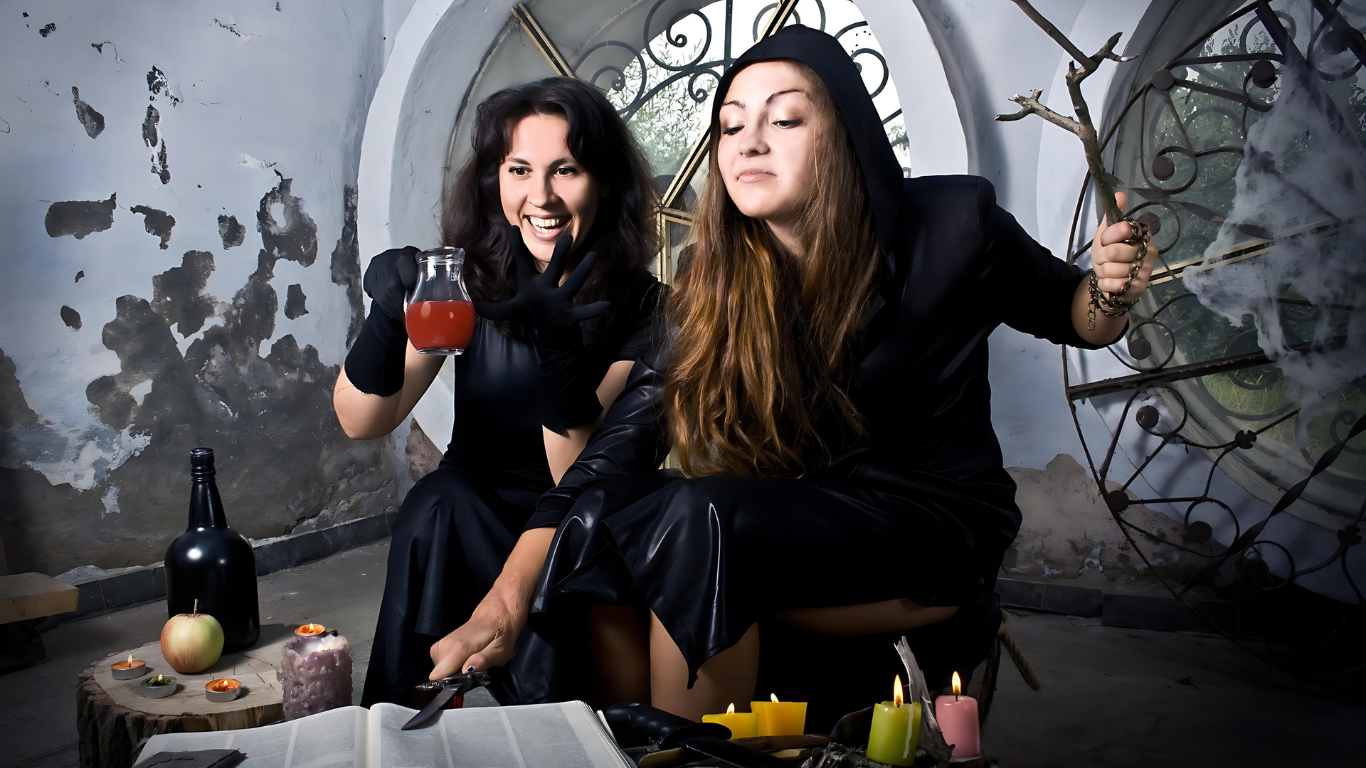"In the rich tapestry of modern witchcraft, jealousy often lurks as a dark thread, unraveling the bonds of community and spiritual harmony. While the craft is fundamentally rooted in personal empowerment and spiritual growth, it is not immune to the pitfalls of human emotions such as jealousy and ego. In today's digital age, these emotions manifest in various toxic behaviors, including cyberbullying, gatekeeping, and racial discrimination, which can significantly weaken one's magical practice and harm the broader witchcraft community."
The Roots of Jealousy and Cyberbullying in Witchcraft
Jealousy in witchcraft communities frequently stems from a desire to establish dominance and authority. Some individuals, believing they are better suited to teach or lead due to their perceived superior knowledge or lineage, may attack others who they see as rivals or threats. This can take the form of public shaming, spreading false rumors, and even targeted harassment online. Such actions are not just harmful to the victims but also diminish the spiritual potency of the perpetrators.
Cyberbullying within witchcraft circles often includes:
- Racism and Sexism: Certain individuals or groups may exclude or demean others based on race, gender, or cultural background, asserting that their way of practicing is the "right" way. This not only harms the targeted individuals but also diminishes the richness and diversity of witchcraft.
- Matriarchy and Egotism: Some believe that their connection to matriarchal lineage or their spiritual experiences grant them exclusive rights to knowledge and power. This grandiosity can lead to the belittling of others, fostering an environment of division rather than unity.
- Gatekeeping: By claiming that only certain practices, tools, or traditions are valid, gatekeepers attempt to restrict access to witchcraft, discouraging and devaluing new practitioners. This hinders the growth and evolution of the craft.

The Impact of Jealousy on Magical Practice
Magic is inherently tied to one's personal energy and intent. When a witch harbors negative emotions like jealousy, it taints their energy, weakening their spells and reducing the effectiveness of their practice. Magic thrives on positive, focused intent and clarity of purpose; jealousy creates chaos and blocks the flow of energy needed for successful spellwork. Jealousy and negativity can act like a spiritual poison, corrupting the energy that a witch channels. This not only affects the witch's own spells but can also return negative energy back to the sender, creating a vicious cycle of negativity. In the practice of magic, the principle of the Threefold Law or Karma often suggests that the energy one puts out into the world will return to them, magnified. Thus, witches who engage in jealousy and harmful behaviors risk not only losing their powers but also inviting misfortune into their own lives.
Tools and Practices Under Attack
In the spirit of gatekeeping and jealousy, various tools and practices are often targeted by those who seek to assert their superiority.
Some of these include:
- Tarot and Oracle Cards: Criticized by some for being "too modern" or "too commercial," these tools are often derided despite their widespread use and historical roots in divination.
- Crystals and Herbs: The use of crystals and herbs is sometimes dismissed as superficial or non-essential, undermining the rich traditions of herbalism and crystal healing.
- Eclectic Witchcraft: Those who blend different traditions and practices are often labeled as "diluted" or "inauthentic," despite the fact that many paths within witchcraft have always been syncretic and adaptable.

The Dangers of Underestimating New Practitioners
Veteran witches who consider themselves born into the craft or who have practiced for many years may view themselves as inherently more powerful and knowledgeable. However, underestimating "baby witches"—newcomers who are just beginning their journey—can be a grave mistake. These new practitioners, fueled by curiosity and a fresh perspective, often bring innovative ideas and powerful energy to their practice.
New witches are not burdened by the same biases and rigid structures that more experienced practitioners may have developed. Their open-mindedness and eagerness to learn can make them potent channels for spiritual energy. Moreover, underestimating these newcomers can lead to a backlash, as negative energy directed towards them can often be returned, magnified, back to the sender. In many traditions, it's believed that harming others through magical or mundane means can create a karmic debt or a spiritual backlash that can severely impact one's own practice.
This article aims to shed light on some of the challenges faced within witchcraft communities and to promote a more inclusive and positive approach to spiritual practice. If you or someone you know is experiencing bullying or harassment within the community, it is important to seek support and take steps to protect your well-being.



Comments ()